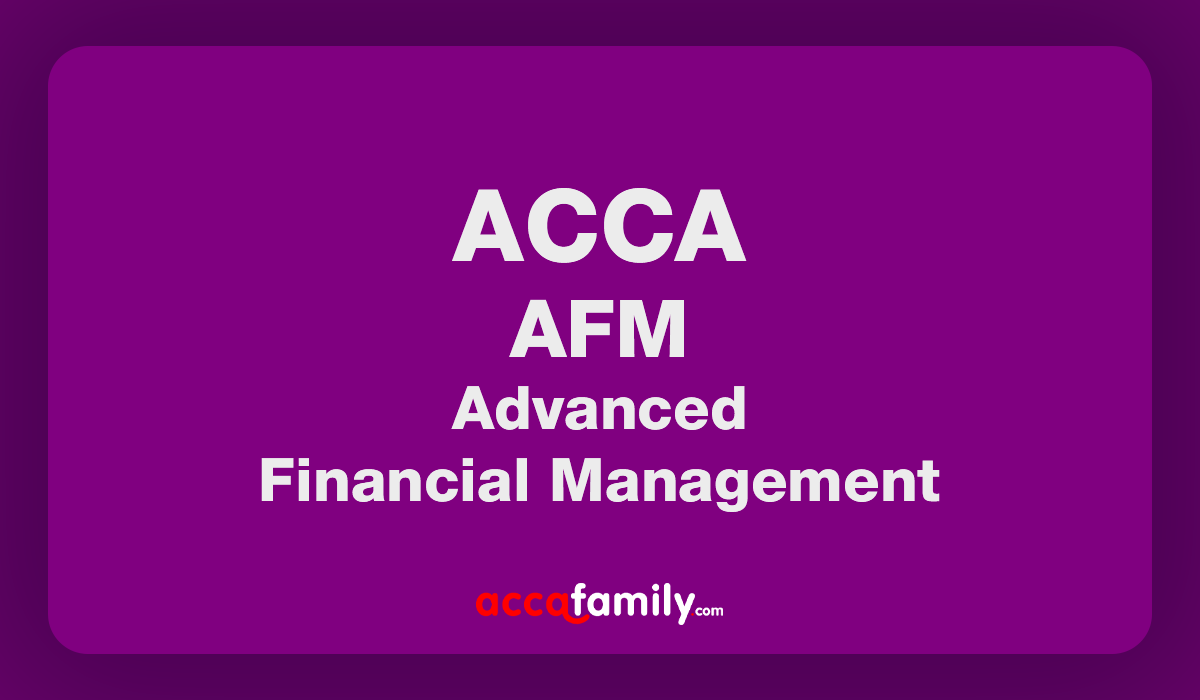Are you seeking comprehensive study materials and resources to excel in your Diploma in International Financial Reporting (DipIFR) examination? The journey to mastering international financial reporting standards requires access to quality educational content that can transform your understanding of complex accounting principles. This guide explores everything you need to know about the DipIFR workbook, Kaplan’s approach to ACCA preparation, and effective strategies to achieve success in this challenging qualification.
Overview of DipIFR Study Materials
| Component | Description | Key Benefits |
|---|---|---|
| Kaplan Workbook | Comprehensive study guide with practice questions | Structured learning approach, exam-focused content |
| PDF Format | Digital study materials | Portable, searchable, cost-effective |
| Practice Questions | Mock exams and scenario-based problems | Real exam experience, skill assessment |
| Study Planner | Organized timeline for preparation | Time management, progress tracking |
| Revision Notes | Condensed key concepts | Quick review, last-minute preparation |
What is the Diploma in International Financial Reporting (DipIFR) Module of ACCA
The Diploma in International Financial Reporting (DipIFR) represents a specialized ACCA qualification designed for finance professionals who need expertise in International Financial Reporting Standards (IFRS). This qualification focuses specifically on the application of IFRS in preparing and presenting financial statements for various types of entities.
Core Components of DipIFR
The DipIFR curriculum covers essential areas that every finance professional must master:
- IFRS Framework and Standards: Understanding the conceptual framework underlying international financial reporting
- Financial Statement Preparation: Practical application of IFRS in creating comprehensive financial statements
- Complex Transactions: Handling sophisticated accounting scenarios including business combinations and group accounting
- Industry-Specific Applications: Applying IFRS across different sectors and business models
Professional Recognition
The DipIFR qualification carries significant weight in the international finance community. Employers worldwide recognize this certification as evidence of your competency in IFRS application. The qualification serves as a stepping stone for those pursuing full ACCA membership or seeking advancement in financial reporting roles.
How Difficult is it to Study and Pass the DipIFR
Understanding the difficulty level of DipIFR helps you prepare mentally and strategically for your studies. The qualification presents moderate to high difficulty, requiring dedicated preparation and strategic study approaches.
Complexity Factors
Several elements contribute to the challenging nature of DipIFR:
Technical Depth: The syllabus demands thorough understanding of complex accounting standards and their practical applications. You must grasp not just the rules but also the underlying principles that guide financial reporting decisions.
Practical Application: Unlike theoretical examinations, DipIFR requires you to demonstrate practical skills in preparing financial statements and handling real-world accounting scenarios.
Time Management: The examination format requires efficient time allocation across multiple complex questions, testing both your knowledge and exam technique.
Success Statistics and Benchmarks
Historical pass rates for DipIFR typically range between 45-55%, indicating that while challenging, success is achievable with proper preparation. The qualification requires approximately 150-200 study hours, depending on your existing knowledge base and study efficiency.
Key Challenge Areas
Most students find these topics particularly demanding:
- Group accounting and consolidation procedures
- Complex financial instruments and their measurement
- Revenue recognition under IFRS 15
- Lease accounting under IFRS 16
- Impairment testing and asset valuation
Why Choose Kaplan for DipIFR Preparation
Kaplan has established itself as a leading provider of ACCA study materials, offering comprehensive resources specifically designed for DipIFR success. Your choice of study provider significantly impacts your preparation quality and exam performance.
Kaplan’s Educational Approach
Kaplan’s methodology combines theoretical knowledge with practical application, ensuring you develop both conceptual understanding and practical skills. Their materials follow a structured progression that builds your knowledge systematically.
Expert Faculty: Kaplan’s instructors bring real-world experience and deep academic knowledge, providing insights that go beyond textbook learning.
Updated Content: Regular updates ensure that study materials reflect the latest IFRS developments and examination requirements.
Comprehensive Coverage: Kaplan materials address every aspect of the DipIFR syllabus, eliminating gaps in your preparation.
Quality Assurance and Track Record
Kaplan’s reputation stems from consistently high student success rates and positive feedback from ACCA candidates. Their materials undergo rigorous quality checks and regular updates to maintain educational standards.
The organization’s partnership with ACCA ensures that study materials align perfectly with examination expectations and marking schemes.
Benefits of Using PDF Workbooks
PDF workbooks offer distinct advantages for modern students who value flexibility and efficiency in their study approach. Digital materials have revolutionized how students access and interact with educational content.
Accessibility and Convenience
PDF materials provide unmatched accessibility across multiple devices and platforms. You can access your study materials on tablets, laptops, smartphones, or desktop computers, ensuring continuous learning regardless of your location.
Search Functionality: Digital formats allow instant keyword searches, helping you locate specific topics or concepts quickly during revision.
Portability: Carry your entire study library on a single device, eliminating the weight and bulk of physical textbooks.
Cost Effectiveness: Digital materials typically cost less than printed versions while offering the same comprehensive content.
Interactive Learning Features
Modern PDF workbooks include interactive elements that enhance your learning experience:
- Hyperlinked contents for easy navigation
- Embedded practice questions with instant feedback
- Multimedia elements including diagrams and flowcharts
- Bookmarking capabilities for personalized study organization
Environmental Considerations
Choosing PDF materials supports environmental sustainability by reducing paper consumption and transportation requirements associated with physical textbooks.
How to Plan Your DipIFR Study Schedule
Effective study planning forms the foundation of successful DipIFR preparation. Your study schedule should balance comprehensive coverage with realistic time allocation based on your personal circumstances.
Assessment of Current Knowledge
Begin by evaluating your existing understanding of financial reporting concepts. This assessment helps identify areas requiring additional focus and allows for customized study planning.
Diagnostic Testing: Take practice questions across different syllabus areas to identify strengths and weaknesses.
Prior Experience: Consider your professional background in financial reporting and adjust study time accordingly.
Creating Your Study Timeline
A well-structured timeline ensures comprehensive syllabus coverage while maintaining momentum throughout your preparation period.
Phase 1 – Foundation Building (Weeks 1-4):
- Study fundamental IFRS concepts and framework
- Review basic financial statement preparation
- Complete introductory practice questions
Phase 2 – Advanced Topics (Weeks 5-10):
- Tackle complex accounting standards
- Focus on group accounting and consolidation
- Practice advanced problem-solving techniques
Phase 3 – Revision and Practice (Weeks 11-12):
- Intensive revision of key topics
- Complete full practice examinations
- Focus on exam technique and time management
Flexible Scheduling Considerations
Your study schedule should accommodate work commitments, personal responsibilities, and learning preferences. Consider these factors when creating your timeline:
- Peak productivity hours for study sessions
- Work schedule and travel commitments
- Family and personal obligations
- Preferred study methods and learning styles
Effective Preparation Strategies for the ACCA DipIFR Exam
Effective exam preparation requires a multi-faceted approach that combines knowledge acquisition with practical skill development. Your preparation strategy should address both content mastery and exam technique.
Active Learning Techniques
Passive reading rarely leads to deep understanding or retention. Implement active learning strategies that engage multiple senses and cognitive processes:
Case Study Analysis: Work through real-world scenarios that mirror examination questions, developing your analytical and problem-solving skills.
Concept Mapping: Create visual representations of complex topics, showing relationships between different accounting standards and their applications.
Peer Discussion: Engage with fellow students to discuss challenging concepts and share different perspectives on problem-solving approaches.
Practice and Application Focus
The DipIFR examination emphasizes practical application rather than theoretical memorization. Structure your preparation around hands-on practice:
Regular Practice Questions: Solve questions daily to maintain momentum and identify areas needing additional attention.
Time Management Drills: Practice completing questions within examination time constraints to develop efficiency and accuracy.
Error Analysis: Review incorrect answers thoroughly to understand mistakes and prevent repetition in the actual examination.
Integration of Knowledge
DipIFR requires you to integrate knowledge from multiple accounting standards and apply them cohesively. Practice scenarios that require simultaneous application of different IFRS standards.
Last-Minute Preparation Guide for DipIFR
Your final preparation phase can significantly impact examination performance. Effective last-minute preparation focuses on reinforcement rather than learning new concepts.
Final Week Strategy
The week before your examination should emphasize revision, confidence building, and practical preparation:
Key Concept Review: Focus on fundamental principles and frequently tested topics rather than obscure details.
Formula and Standard Memorization: Ensure you have memorized essential formulas, accounting treatments, and disclosure requirements.
Examination Logistics: Confirm examination venue, timing, and required materials to avoid day-of-exam stress.
Day Before Examination
Your pre-exam day routine should promote relaxation and readiness:
- Light revision of key formulas and concepts
- Organization of examination materials and documentation
- Adequate rest and nutrition preparation
- Mental preparation and confidence building exercises
Managing Examination Anxiety
Develop strategies to control nervousness and maintain focus during the examination:
Breathing Techniques: Practice deep breathing exercises to maintain calm during stressful moments.
Positive Visualization: Visualize successful completion of examination questions to build confidence.
Time Management Rehearsal: Practice your time allocation strategy to ensure smooth execution during the actual examination.
Advanced Study Techniques for Complex Topics
Mastering complex DipIFR topics requires specialized study approaches that go beyond standard textbook reading. These advanced techniques help you develop deeper understanding and practical application skills.
Group Accounting Mastery
Group accounting represents one of the most challenging areas of DipIFR. Develop systematic approaches to consolidation problems:
Step-by-Step Methodology: Create standardized procedures for handling consolidation adjustments, ensuring consistency and accuracy in your solutions.
Visual Learning Aids: Use flowcharts and diagrams to understand complex ownership structures and their accounting implications.
Practice Progressions: Start with simple parent-subsidiary relationships before advancing to complex multi-level group structures.
Financial Instruments and Fair Value Measurement
The complexity of financial instruments requires focused attention and specialized study techniques:
Classification Frameworks: Develop decision trees for classifying financial instruments under IFRS 9, ensuring accurate categorization in examination scenarios.
Measurement Methodologies: Practice fair value calculations using different approaches, understanding when each method applies.
Impairment Models: Master the expected credit loss model through repetitive practice and real-world applications.
Technology Integration in DipIFR Studies
Modern educational technology can significantly enhance your DipIFR preparation efficiency and effectiveness. Leverage digital tools to create a comprehensive and engaging study experience.
Digital Study Tools
Incorporate various technological solutions to support your learning process:
Mobile Applications: Use ACCA-specific mobile apps for on-the-go practice questions and quick revision sessions.
Online Communities: Participate in digital study groups and forums where you can discuss challenging concepts with fellow students worldwide.
Video Learning Resources: Supplement your reading with visual explanations of complex accounting treatments and standards.
Data Management and Organization
Effective information management becomes crucial when dealing with extensive study materials:
Cloud Storage Solutions: Store your study materials in cloud-based systems for access across multiple devices and locations.
Note-Taking Applications: Use digital note-taking tools that allow for easy searching, organizing, and sharing of study notes.
Progress Tracking Software: Monitor your study progress using applications that track completed topics and practice question performance.
Career Impact and Professional Development
Achieving DipIFR certification opens numerous career advancement opportunities and establishes your expertise in international financial reporting. Understanding these benefits motivates sustained effort throughout your preparation journey.
Career Advancement Opportunities
DipIFR qualification significantly enhances your professional profile across various finance and accounting roles:
Financial Reporting Manager: Lead financial reporting teams and ensure compliance with international standards.
IFRS Implementation Specialist: Guide organizations through IFRS adoption and ongoing compliance requirements.
Financial Analyst: Provide expert analysis of financial statements prepared under international standards.
Audit Professional: Enhance your auditing capabilities with deep IFRS knowledge for multinational client engagements.
Global Recognition and Mobility
The international nature of IFRS ensures that your DipIFR qualification carries value across borders, facilitating career mobility and international opportunities.
Key Takeaways
- Diploma in International Financial Reporting (DipIFR) represents a specialized ACCA qualification focusing on IFRS application and financial statement preparation
- Kaplan provides comprehensive study materials with proven track records of student success through structured learning approaches
- PDF workbooks offer flexibility, portability, and cost-effectiveness while maintaining comprehensive content coverage
- Effective study planning requires 150-200 hours of preparation across 12 weeks, with emphasis on practical application rather than theoretical memorization
- Success demands active learning techniques, regular practice, and integration of knowledge across multiple accounting standards
- Last-minute preparation should focus on key concept revision, formula memorization, and examination logistics rather than learning new material
- DipIFR certification significantly enhances career prospects and provides global recognition in financial reporting roles
Frequently Asked Questions
What is the pass rate for DipIFR examinations? Historical pass rates for DipIFR typically range between 45-55%, indicating moderate to high difficulty levels that require dedicated preparation and strategic study approaches.
How long should I spend preparing for the DipIFR examination? Most successful candidates dedicate 150-200 study hours over 12 weeks, though individual requirements may vary based on prior experience and learning efficiency.
Can I use calculator during the DipIFR examination? Yes, you can use a silent, battery-powered calculator during the examination. Ensure your calculator meets ACCA’s technical specifications and practice with it during preparation.
What happens if I fail the DipIFR examination? You can retake the examination after a waiting period. Use the feedback provided to identify weak areas and adjust your preparation strategy for the next attempt.
Is work experience required before taking DipIFR? While work experience is not mandatory, practical experience in financial reporting significantly enhances your understanding of concepts and their real-world applications.
How does DipIFR relate to full ACCA qualification? DipIFR serves as a standalone qualification but can also contribute toward ACCA membership requirements, potentially exempting you from certain papers in the full qualification route.
Conclusion
The Diploma in International Financial Reporting (DipIFR) represents a valuable investment in your professional development, providing specialized expertise in IFRS application that employers worldwide recognize and value. Success in this challenging qualification requires strategic preparation, quality study materials, and consistent effort over an extended period.
Kaplan’s comprehensive workbooks and PDF materials offer the structured approach and detailed content coverage necessary for DipIFR success. By combining these resources with effective study planning, active learning techniques, and regular practice, you position yourself for examination success and career advancement.
Your journey toward DipIFR certification demands dedication and strategic preparation, but the professional benefits and career opportunities that follow make this investment worthwhile. Begin your preparation today with confidence, knowing that proper planning and quality resources will guide you toward success in mastering international financial reporting standards.
Latest Update – February 2026
This article has been reviewed and updated to reflect the most recent information and insights.
Latest Update – March 2026
This article has been reviewed and updated to reflect the most recent information and insights.













